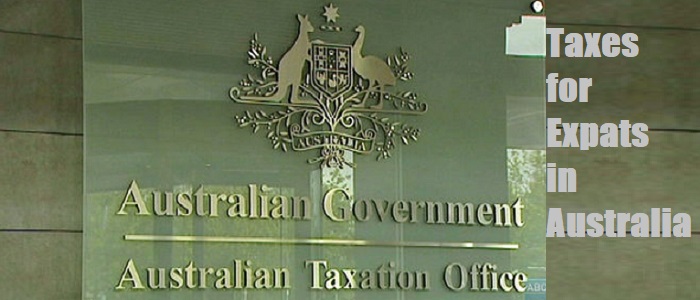
Taxes for Foreigners Working in Australia
Taxes for Foreigners Working in Australia
Taxes for Foreigners Working in Australia.Taxation isn’t a new concept. It has been in and around for quite some time now. It works on a simple idea that anyone working in a specific country or state ought to pay a certain amount as taxes. The same is then spent on infrastructure and several other growth-related aspects. When you are working in Australia you are liable to pay taxes. Australian residents must pay taxes and non-residents must also pay taxes on their Australian income.
How does Australia’s taxation work?
If you are an expat in Australia and receive wages, salary, cash compensation, or other allowances, you must pay the applicable taxes. As is the case with most taxation system, you are allowed for deductibles from your assessable income. Depending on your net taxable income and the appropriate tax slab, you are liable to pay taxes.
Should your employer provide you with non-cash benefits or compensations, the same is subject to Fringe Benefits Tax. You do not have to scratch your heads over it, as your employer must pay the same. The Australian Tax year starts on the 1st of July and ends on the 30th of June.
What is the tax slab?
The government levies different taxes based on which tax slab you belong to. These are net taxable income, so you must figure out which all deductions are applicable.
- Expats earning between 0-18,200 AUD are not liable to pay any taxes at all.
- If you earn between 18,201-37,000 AUD, you must pay 19% as income taxes.
- For earning between 37,001-87,000 AUD, the income tax rate stands at 32.5%.
- If your annual income is within the range of 87,001-180,000 AUD, the income tax rate is 37%.
- Individuals taking home more than 180,001 AUD must pay 45% as taxes.
However, if your earnings sum up to 20,542 AUD you are not liable to pay any taxes. Provided you utilize the Low Income Tax Offset or LITO.
Certain Advantages and Disadvantage
If you are an expat earning in Australian Dollars, there are two sides of the coin that you are exposed to. While there are some merits of being an earning Expat, there are certain shortcomings as well. Here are some of the differences.
- A resident Australian effectively pays lesser taxes than what a non-resident would. A non-resident pays more taxes per dollar.
- An Australian resident is liable to pay taxes on their global income whereas a non-resident must pay taxes only for his Australian income.
- Residents have the go green flag for paying medical levy and can claim various medical expenses. On the other hand, a non-resident can neither pay medical levy nor can he/she claim their medical expenses.
- Residents have an upper hand when it comes to bank accounts as well, as they can accumulate interests on savings on at a normal rate. Expats on the other hand are taxes at 10% flat on their earnings via interest.
- An Australian citizen is liable to pay capital gains tax on almost everything, property, shares, stocks etc. However, an expat must only pay capital gains taxes on real estate or property and not on shares.
Other Benefits
For expats working in Australia, they can claim a certain amount as tax offset and it is applicable to the amount that they have paid foreign taxes on, the assessable income to be more precise. ATO has a tax treaty with more than 45 countries and if you belong to anyone, you can benefit from the same. There are several online calculators which can aid you in understanding your tax liability as an expat.

Recent Comments